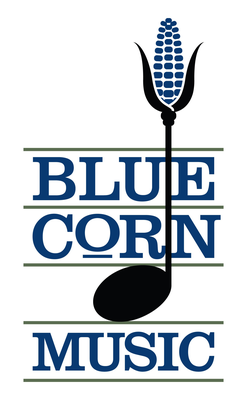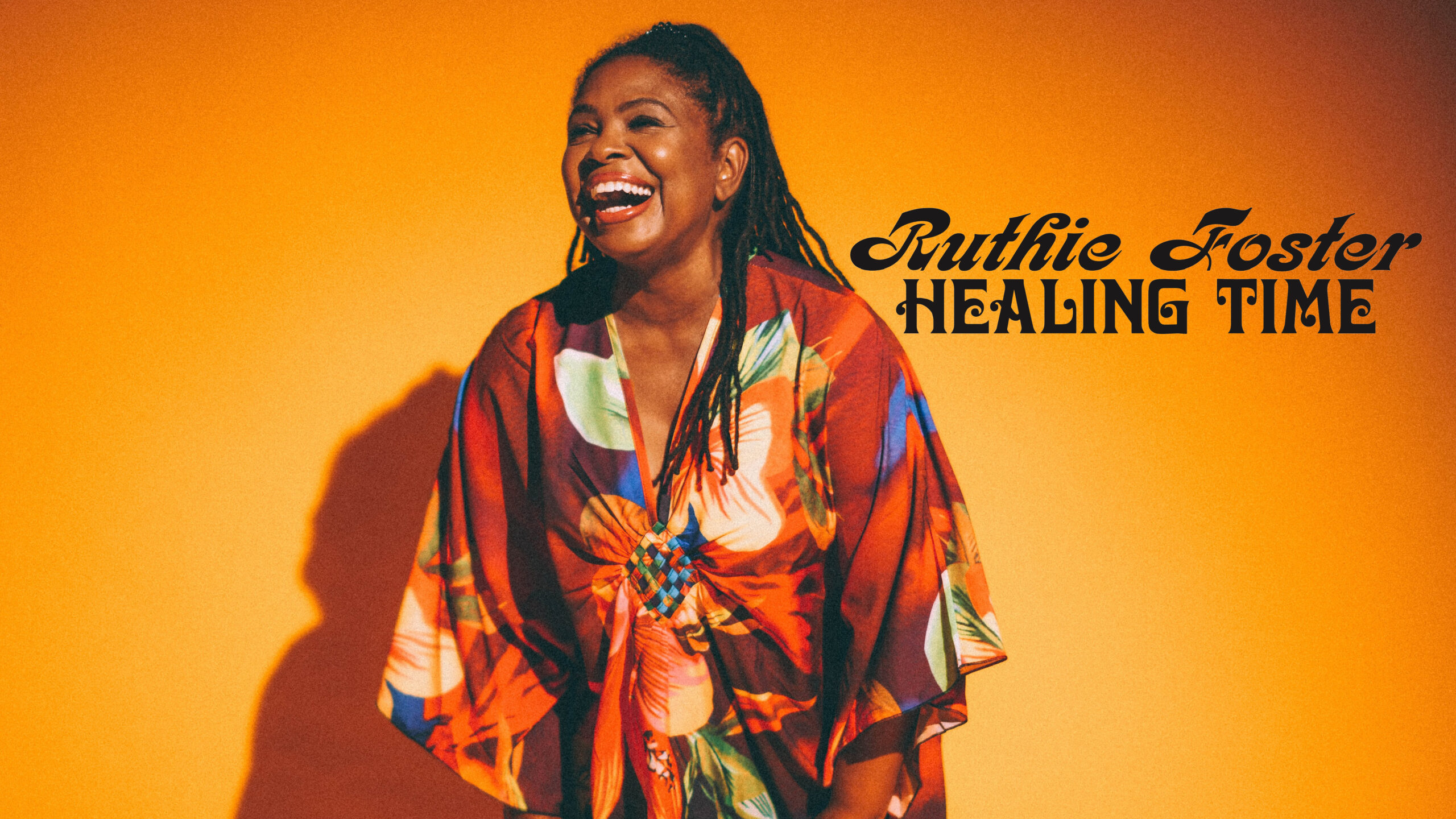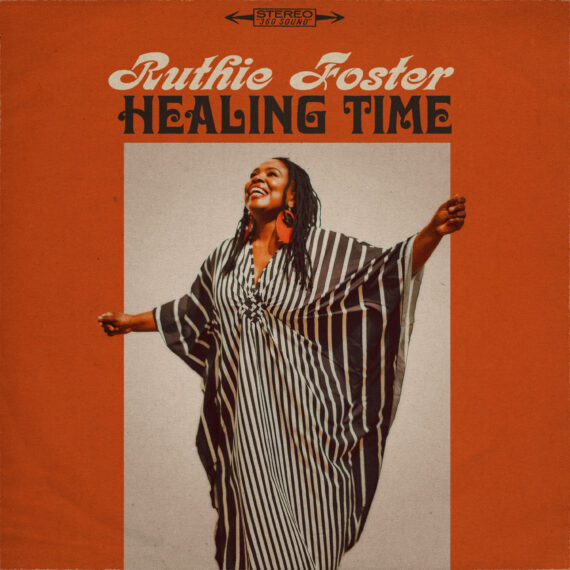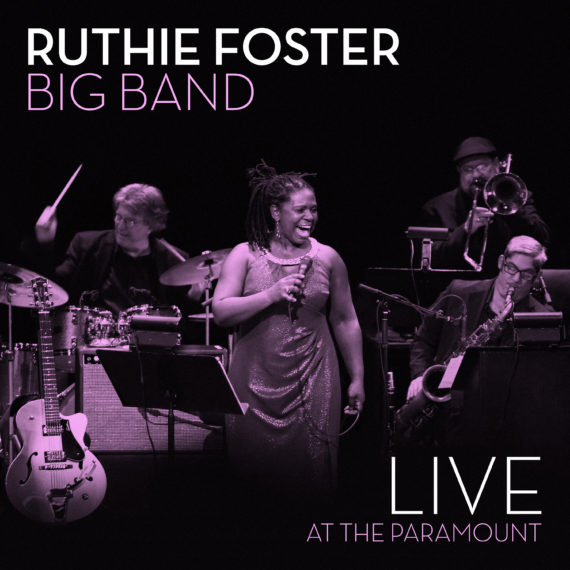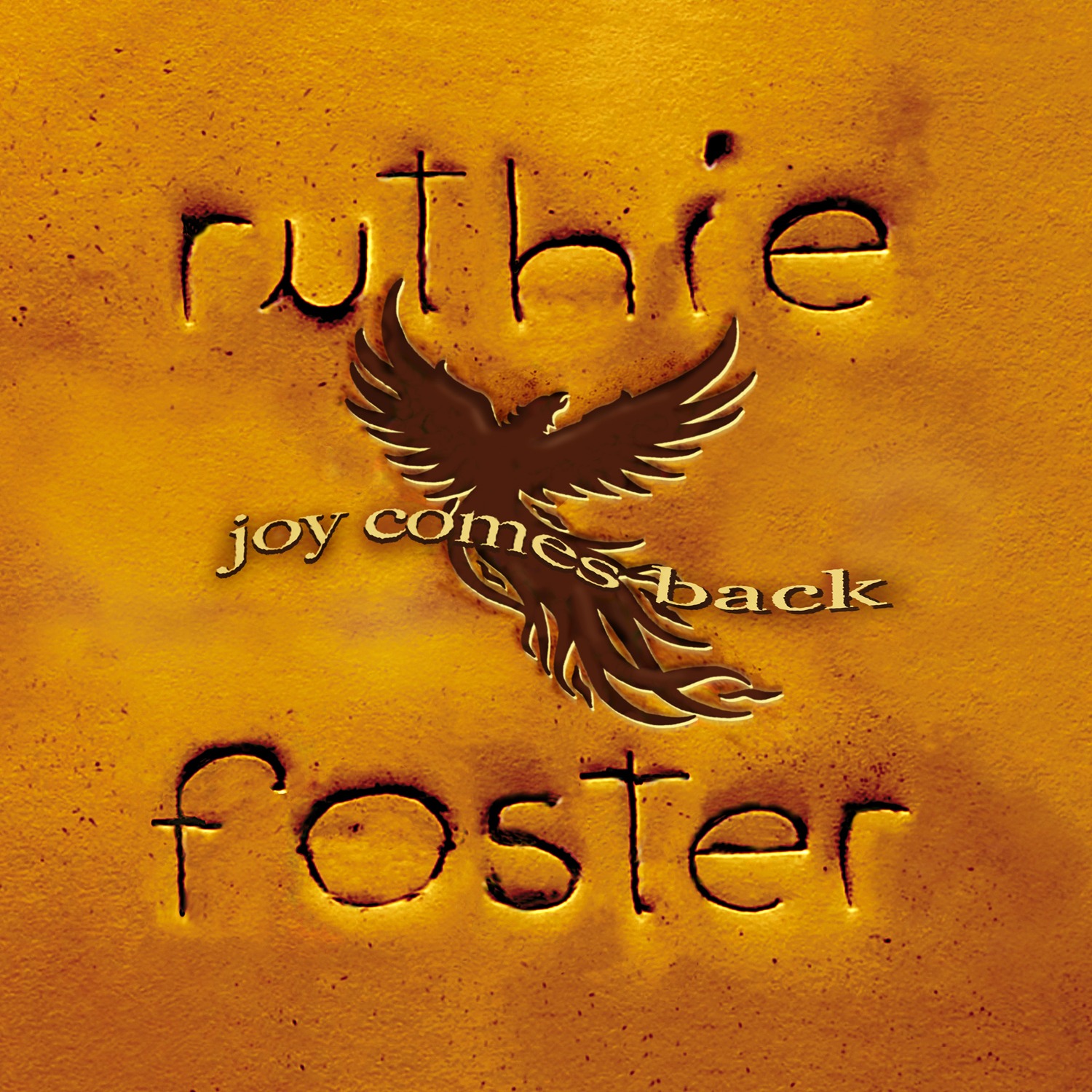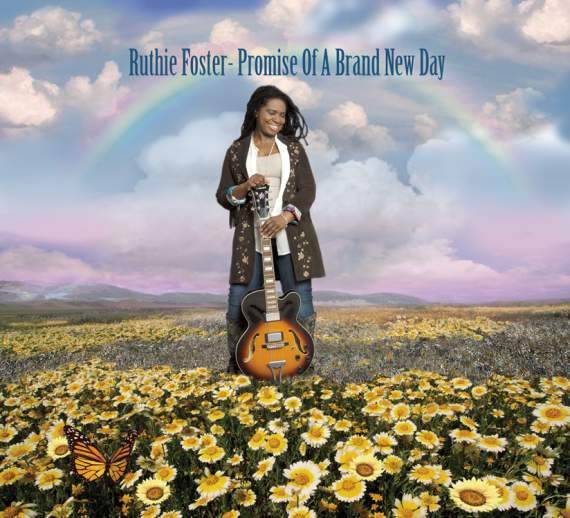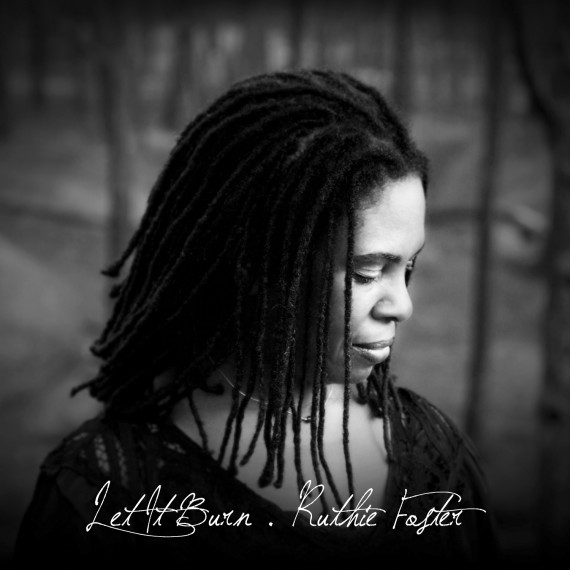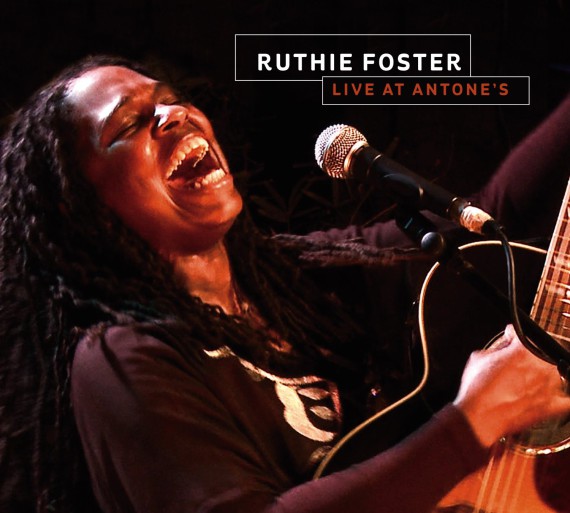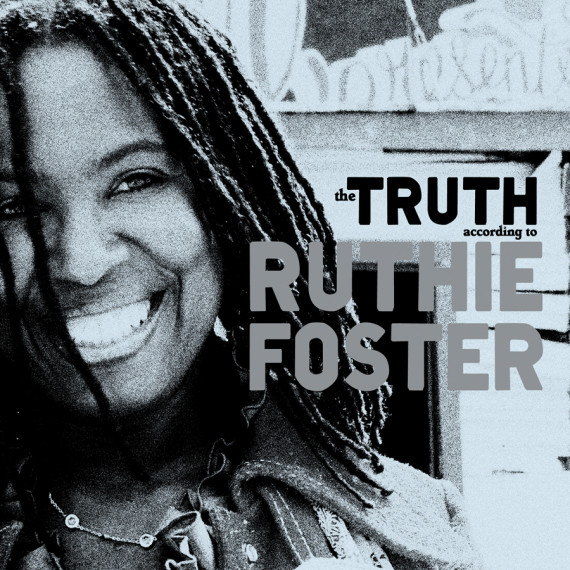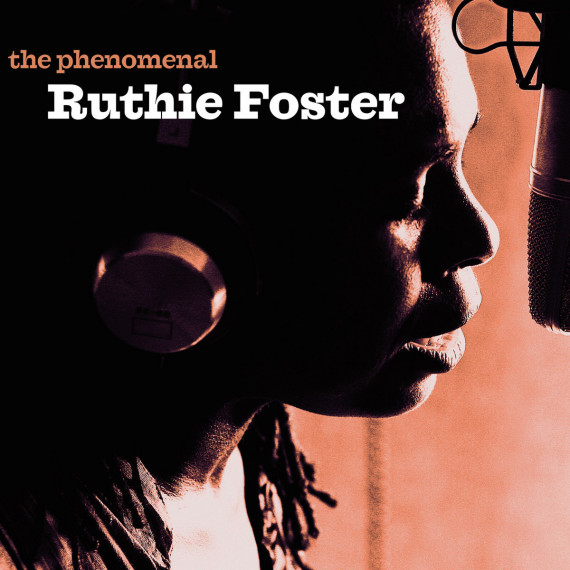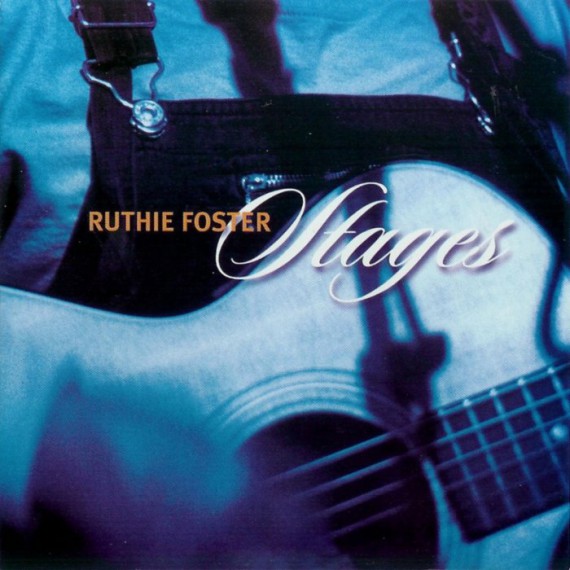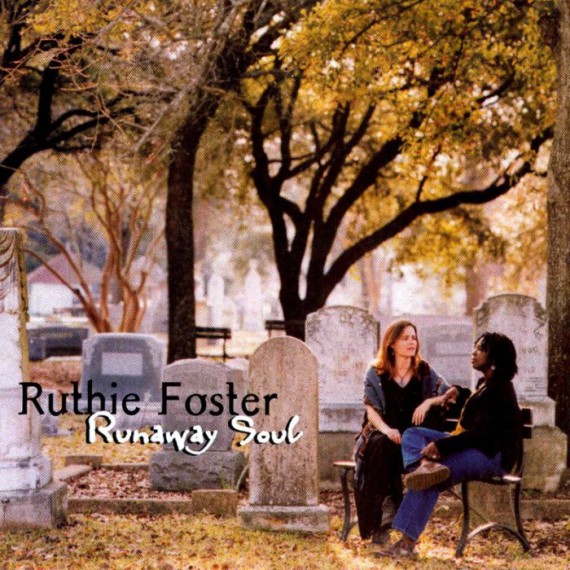Ruthie Foster
Ruthie Foster’s ninth studio album represents a new high-water mark for the veteran blues artist—a collection of songs possessing pure power, like a tidal wave of musical generosity. Healing Time finds Foster pushing her boundaries as a singer and songwriter more than ever before, creating a truly live-sounding atmosphere with the help of her band, who sound refreshingly loose and lived-in throughout these 12 songs. We’ve all been in need of some healing in recent times, and Foster’s latest provides a guide for how to move through the world with equal parts compassion and resolve.
Healing Time is the latest jewel in Foster’s accomplished career, which includes multiple Grammy nominations and collaborations with fellow luminaries like Susan Tedeschi and Derek Trucks. For her latest, Foster contributed more to the writing process than she had on any of her previous albums, effectively refining her own songcraft in the process. “With this album, I dug deep and tried to go for the best way to write,” she explains. “This album says a lot about the period we were making it in, and how I wanted to find my way out of it.”
Work on the album began in lockdown during the COVID-19 pandemic in 2020, as Foster enlisted previous collaborators like Gary Nicholson and Grace Pettis to pitch in during the writing process—as well as every member of her band. “I wanted my band involved in the entire process of this album,” she explains, and they also played a large role in recreating the sound that Foster had become drawn to after spending time with her vinyl collection. “I was aiming to keep these songs sounding like they came from that era, which says a lot about where I am in my life, too.”
Veteran producer Mark Howard (Willie Nelson, Lucinda Williams) came in to bring new ideas to Foster’s table as recording began at Studio 71 West in Austin, TX, New Orleans’ famed Esplanade Studios, and Blue Rock Studio in Wimberley, TX. “Mark’s ability to turn a song’s arrangement upside down was intriguing and sometimes challenging for me,” she states. “It was a lot to wrap my head around, but he made me think outside of the box I didn’t even know I was in.”
Producer Dan Barrett, who also worked with Foster on 2017’s Joy Comes Back, then took the helm at Black Pumas co-bandleader Adrian Quesada’s famed Electric Deluxe studio in Austin. Along with several Black Pumas members, Barrett brought in a collection of Austin’s finest backing musicians, like Glenn Fukunaga (The Chicks, Shawn Colvin). “With Dan onboard we were able to find the glue to these songs sonically, and he brilliantly melded my familiar Texas blues-Americana sound with what Mark pulled out of me in New Orleans,” Foster says. “This combination gave these songs a breath of fresh air, and it all came together very organically.”
Healing Time’s title—as well as its burst-of-sunshine title track, which features pedal steel legend Robert Randolph—is a reference not only to the trials many have faced over the last several years, but also the necessity of what Foster does as an artist. “I hear fans tell me that the music we make is very spiritually healing,” she says. “The experience of dealing with my own grief after losing a band member a year before the pandemic while navigating around zoom school with my daughter and trying to figure out what to do with myself was tough but necessary. When I look at it as a whole it was all very healing for me which is pretty much how I try to live my life. There’s always time for healing, if you give it time.”
For the bright, propulsive opening track “Soul Searching,” Foster and Nicholson aimed to capture the struggle of seeing through the troubles that we sometimes face in relationships. “We were looking for something about being caught inside a shift,” she explains, “and the realization that while it worked in the beginning, it’s now changed and if you’re both able or even willing to take that trip together or not.”
The classic-sounding, twinkling pop of “Don’t Want to Give Up on You,” meanwhile, embraces a lovely melody over a deceptively simple song structure. “I wasn’t sure how to complete it,” Foster says, “but Grace helped me realize that it was actually finished, and that how a song is delivered is the real key to how it’s received. Keeping it simple is all there is to do as a songwriter sometimes.”
The slow-burning “What Kind of Fool” was one of several songs that were sonically re-shaped by Howard’s input: “What we wrote was something totally different,” Foster recalls. “Mark brought in a track similar to what Amy Winehouse more than likely had recorded and said, ‘Let’s try it this way.’ It was a totally different approach, and it worked.”
“Finish Line” showcases contributions from slide guitar veteran Sonny Landreth, while Foster’s take on “Feels Like Freedom,” which was originally sung by Joanna Jones, makes the heart soar with her passionate vocal take and full embrace of the song’s lyrical lessons. “I fell hard for the song,” she says while discussing her rendition and what it means to her. “It said everything about what I wanted to do with this album. It’s about this feeling of rising from a place where you felt stuck. Towards the end of the song, you realize that ‘Oh, this is what it feels like to be totally free!’. A lot has gone on in the last several years, and for some people it felt as if the world was falling apart. This song says to me, ‘No, we got you.’”
Then there’s the ruminative and luminous album closer “4 AM,” which originated while Foster was on tour in Eastern Europe. “I felt very out of sorts while being so far from home, trying to keep up with my family and friends,” she recalls. “I was up really late and not able to sleep, and I just sat with my guitar, a tea set, and a shot of vodka, and I wrote from where I was. I was disconnected from the people I love, but connected to what I was there to do.”
“Touring musicians get all this love from hundreds, sometimes thousands of people every working night,” she continues, “and then I come back to this lonely hotel room by myself. I go from feeling everything to just being.” And Healing Time is ultimately a work that explores such extremes as being human often brings to the surface, reminding listeners that even when we feel like we’re at the top, we’re ultimately still finding our way—a beautiful reflection of the essence of living itself.
Visit the official Ruthie Foster Website »
Tour Dates
No tour dates currently available.
Complete Calendar »
Bonnie Raitt, Ruthie Foster & Martie Maguire - Angel From Montgomery (John Prine)
At the start and end, Friday’s “Harvey Can’t Mess With Texas” concert for hurricane relief at the Erwin Center was much like all great Willie Nelson shows. It began, as Willie always does, with “Whiskey River,” before closing with an “I’ll Fly Away”/”Will the Circle Be Unbroken” finale. In between, though, Austin got to see a concert the likes of which has never been thrown here.
There was Willie singing “Funny How Times Slips Away” with Leon Bridges, and “Texas Flood” with Bonnie Raitt and Jimmie Vaughan. Then Bonnie sang with James Taylor. Then Taylor fronted Asleep at the Wheel. Then Asleep at the Wheel backed Paul Simon and Edie Brickell singing “Waltz Across Texas.” Then the Dixie Chicks’ Martie Maguire and gospel sensation Ruthie Foster joined Raitt for “Angel From Montgomery.” And on and on and on. It was that kind of night, for more than four hours…. -AUSTIN AMERICAN STATESMAN
Ruthie Foster Christmas Playlist!
Is available to listen to on Spotify! Happy Holidays!
